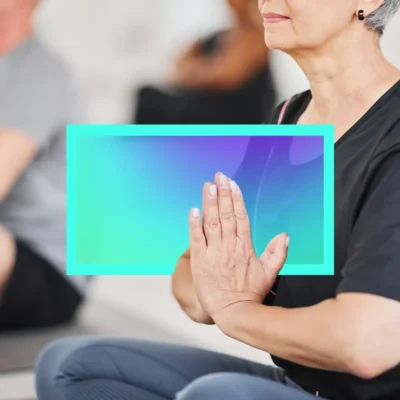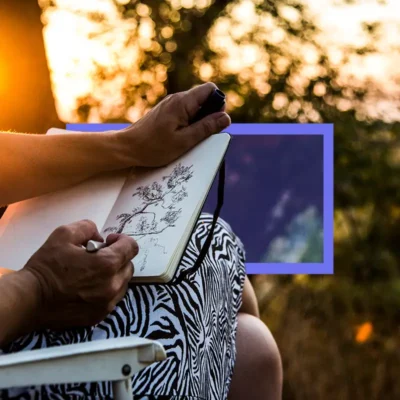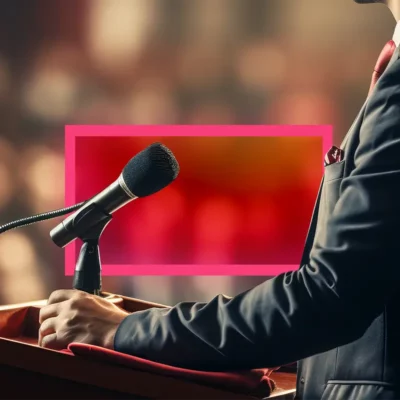Fighting my fears – and winning in spite of losing
In a dank basement near Wall Street, author and journalist Thomas Page McBee spends months learning how to box. Soundtracked by hip-hop, he trains, learning the language, the dance, the fluidity. But when he steps into Madison Square Garden he faces more than his opponent, he’s confronts his own fears of masculinity, aggression, and inadequacy. The bell rings as thoughts tumble across Thomas’ mind in this poetic brush with our primal nature. Photo credit: Ala Lucia.
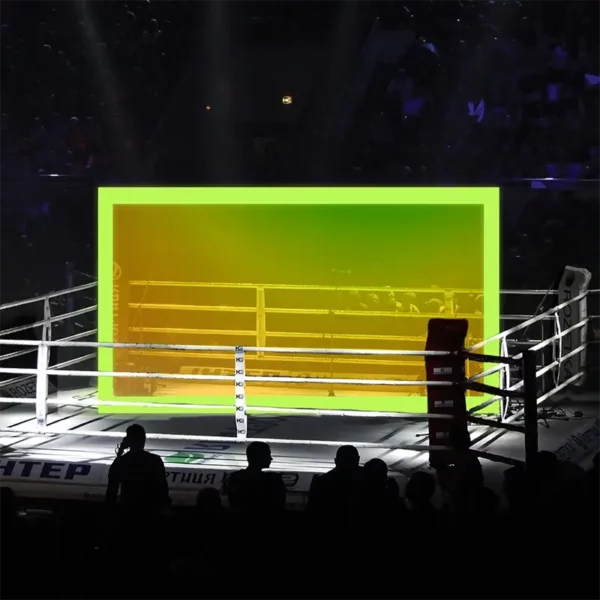
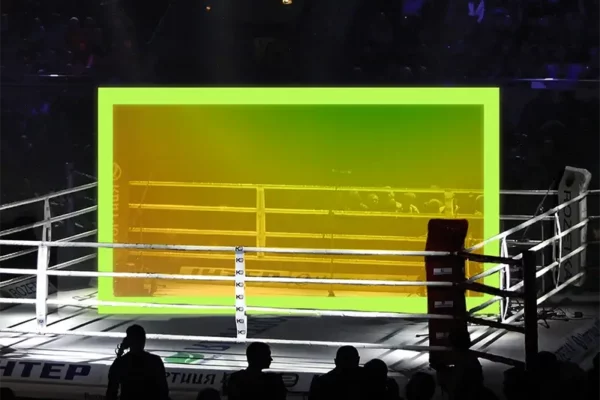
Table of Contents:
Transcript:
Fighting my fears – and winning in spite of losing
THOMAS PAGE MCBEE: I’m losing now, but I feel weightless, and strangely free. This moment is a gift. I have nothing to prove. I feel shameless. I don’t back down but I also don’t give in to my worst self. Eric gives me the most perfect moment of my life.
I retreat to my corner when the bell rings, and try to pay attention to Danny, who’s talking in a steady stream boxing clichés: Don’t gas out, get in and out, bunches of punches. But his words are less comforting than his voice, a tether as he wipes my face, and takes care of me. I take in the crowd again, their faces a drunken, bloodthirsty blur. I want a burger. I want to hug my girlfriend. I want to be gentle with myself. I’m alive. I’m alive.
ROHAN GUNATILLAKE: The boxing ring may seem like the last place to find calmness and compassion. However it’s precisely there where today’s Meditative Story takes us.
Thomas Page McBee is a journalist who found answers to some of his most profound questions through fighting, and along the way discovered what happens when you stop trying to win.
In this series, we blend immersive, first-person stories with mindfulness prompts to help you recharge at any moment of the day. I’m Rohan, and I’ll be your guide for Meditative Story.
There’s a real drama, a real intensity to those moments before a boxing match, isn’t there? The fighters waiting for their names to be called. Waiting. Ready. Hyped.
Notice the level of energy in your body, whatever it is. Any areas of vibration, areas of stillness. Heat and cool. Dropping any thoughts of elsewhere and trusting our instincts and our abilities. Alert, here, ready to go.
The body relaxed. The body breathing. Your senses open. Your mind open. Meeting the world.
MCBEE: To ground myself in this moment, I bite down hard on my mouth guard. Then, when the roving spotlight finds me, I make my way down the aisle toward the ring – at the heart of the most storied sporting venue on Earth. This is Madison Square Garden – and I’m the first trans man to ever fight in it.
An amateur in every sense of the word.
“Thomas McBEAST McBee,” the announcer says. I swing myself between the ropes, and hop up and down on the soft mat, my gloved hands in the air. The blurry crowd cheers, amused.
I am not a boxer, not really. I’m a 34-year old writer. Last summer, when I pitched my editor a story about me learning how to fight, it’s because I want to box in order to unpack the vexed relationship between masculinity and violence. I’d only been a man for all the world for four years, but my experience with male violence has been lifelong. My worst fear is that I’m destined to be as toxic as the abusive man who raised me. This isn’t just about boxing. This is about looking my worst fears in the face.
For five months, I spend every spare minute training in a dank basement gym near Wall Street, soundtracked by hip-hop and the thwack of gloves hitting bags and faces. What I find there is surprising. As I jump rope and hit heavy bags and learn the language of boxing, I discover a beautiful ballet beneath the posturing. There’s an intimacy in the gym that exposes fighters to their vulnerabilities as much as their strengths.
I get to know myself in those hours of relentless discipline, and I get to know the other men too. I learn that I’ve got a good chin, which means I can take a punch and shake it off. “You’ve got a lot of heart,” a grizzled old fighter tells me. It’s boxing’s biggest compliment. For the first time, I can see it.
These men reflect me back to myself. They see me at my most scared, and they never stop believing in me. Here they are now, Stephen, Kenny and Ed, gathering ringside to watch. As I extend a glove toward them, they holler encouragement my way. Then I turn away from them, and bring my focus back into the ring.
My opponent, Eric, enters to his fight song. My coach, Danny, steps up into the ring, and puts his face close to mine. Everything else falls away. We lock eyes as Danny gives me water, tightens my head gear, and checks the laces on my gloves. “You got this, Tommy,” he says. His voice is all I can hear, and then he’s gone, retreating back behind the ropes.
I size up my opponent, who’s squat and thick. He walloped me in our qualifying spar a couple of months ago, and I know he thinks that I’ll be easily defeated. The bell rings and I advance toward him, squeezing the rough innards of my gloves, narrowing my focus in an animal way. I know there’s cheering, but exterior sound is sucked out of the ring. I hear nothing in the vacuum but my heartbeat, my breath, the squeak of our shoes. I see nothing but his eyes over his gloves.
GUNATILLAKE: Can you imagine being there, looking through Thomas’s eyes? See his opponent, the movement of his feet dancing, the color of his gloves. Notice the four rows of ropes and the posts making up the ring around you, notice the blur of the crowd behind them.
MCBEE: In the first round, I channel my aggression, keeping it hot but not letting it overtake me. I register the occasional cheer of the crowd, but the sound mostly hangs on the periphery of my narrowed senses. I see the defeated slump of my opponent’s shoulders. The ref gives him a standing eight count. The cheers pour back in. I raise my hands in the air and dance around the ring, welcoming this moment in the sun, even if it is at Eric’s expense.
I’d spent my whole life afraid of men. As I circle Eric, the tang of our sweat thick and twinned, I realize in that moment – that moment when I’m winning – that all I want is to see that I have nothing to fear. I’ve taught my body exactly how to fight back.
Even as I charge him, I feel a surge of kindness toward him. I can feel myself letting go of the need to win. I can see, in the way he squares his shoulders and takes wilder and wilder shots, that the outcome that no longer matters to me, means the world to him. His pride is wounded and I realize that, no matter what happens, mine can’t be. I don’t stake my masculinity on this fight. My gender has nothing to do with winning. My masculinity is my own.
GUNATILLAKE: Can you sense the freedom? The freedom that Thomas feels that whatever happens ultimately won’t affect his sense of himself. Where do you sense that feeling of letting go in your body? Let go.
MCBEE: At the bell, I return to my corner, and sound floods back in. Danny makes me raise my hands in the air. “That was fucking perfect,” he marvels. The guys ringside jump up and down.
The bell rings again, round two. The crowd, sensing a comeback, cheers wildly. In their eyes, Eric’s the underdog. I’m the villain. He’s newly energized. I watch him re-inflate, find his power, and it’s oddly beautiful. To win, I have to find a way to hate him, and I can’t. Boxing is karmic that way. I had my moment. Now it’s his.
The crowd seeps back in, calling his name. I see a smile curl his mouth. He’s leaning in for the win. But I can’t summon the same dark impulse, and I’m at peace with that.
I’m losing now, but I feel weightless, and strangely free. This moment is a gift. I have nothing to prove. I feel shameless. I don’t back down but I also don’t give in to my worst self. Eric gives me the most perfect moment of my life.
I retreat to my corner when the bell rings, and try to pay attention to Danny, who’s talking in a steady stream boxing clichés: Don’t gas out, get in and out, bunches of punches. But his words are less comforting than his voice, a tether as he wipes my face, and takes care of me. I take in the crowd again, their faces a drunken, bloodthirsty blur. I want a burger. I want to hug my girlfriend. I want to be gentle with myself. I’m alive. I’m alive.
Danny calls my name and brings me back: “Tommy!” I look back at him and smile. He hits me lightly on the top of my head. It’s round three.
The last round is a wheeling, spinning, spangle of color and sound. I hear the crowd again, shouting: “E-ric, E-ric, E-ric.” It’s a comeback story for them, I can see that – and the story isn’t mine. But we’re in this together, Eric and I, bonded. As we run down the last two minutes, exhausted, our headgear askew, I love him, I really do.
As the last bell rings, I raise my hands high in the air and walk back toward my corner. For the first time since I can remember, my future feels expansive and bright. We remove our gloves and meet in the center of the ring, both of us slick with sweat. The ref stands between us, holding both of our hands, and I keep my other one in the air even as they announce that Eric’s won.
GUNATILLAKE: What posture are you in right now? As the two fighters raise their arms in victory, what quality does your posture symbolize? Can you feel a connection with the people and space around you, just as Thomas did?
MCBEE: They say that you can find out who you are in the ring, when you’re stripped of pretense and exposed, with only your body and your instincts to define you. I think that’s true.
Fighting is a natural response to threat, and we’re all capable of standing up for ourselves when it counts. Winning, however, is more subjective than it might appear. A fighter fights himself, as my coach always says. I fought my fears. As they call Eric’s name, I turn toward him, and hug him tight. I’m so happy for him.
“I didn’t win,” I think to myself, as I walk back to my corner. But I won.
Rohan’s closing meditation
GUNATILLAKE: Boxing and meditation are perhaps not as different from each other as you might have thought before hearing Thomas’ story. Thomas speaks rather beautifully about how fighting can help you find out who you are, the ring a place of real vulnerability, your only weapons, your only allies, your body, your training and your instincts.
Meditation is also a space where we become exposed. Willingly. Letting our physical being, our thoughts, our habits, the contents of our minds be revealed.
And it’s not always pretty. While the popular idea that meditation is all relaxation and bliss, rainbows and fluffy bunnies, to be honest, most of the time it’s anything but. It can sometimes be a real struggle. Physical discomfort. Negative thoughts. Patterns of mind that perhaps we once suppressed, rising back into our awareness.
But it’s ok. With time, and with skill, like Thomas we learn when we need to advance, and when to drop back. Like Thomas, we learn to dance. So let’s meditate. Let’s dance.
Eyes open or eyes closed, it’s up to you. Whichever makes most sense, and makes you most safe. Tuning into breathing. Whether it’s in the belly, the chest, or elsewhere, just become aware of your breathing. If it helps, you can put your hand on your belly for a stronger connection.
Breathing. Your body just doing it by itself.
Ok. Now notice where you are most aware of some tension or agitation in the body.
Whether it’s been a long day already or if you’ve only just got up, you’ll most likely have some kind of tightness or discomfort along the front of the body: the chest, the stomach, the neck, the jaw. Or along the back of the body: the shoulders, the upper back, the lower back.
Drop the breath and instead move to the area of discomfort that is most calling for your attention right now. Again, only doing this if it feels safe to do so. For me right now, it’s a sensation of real tension and uncomfortable heat in my shoulders. What is it for you?
With our attention, our awareness here on this difficult sensation, can you notice how you’re reacting to the sensation? Are you pushing it away? Are you wishing it wasn’t here? Are you fighting it?
It was such a beautiful moment in Thomas’s story when – right in the middle of the fight – he dropped the need to win. He continued to fight but he did so with love for his opponent and his victory was assured.
Inspired by Thomas, let’s do the same. While still feeling the intensity of whatever physical discomfort most stands out for us right now, can we drop the struggle? Still feeling it in all its detail, but letting it be there, not pushing it away. Being with the difficult, not ignoring it. Loving it and all its glory, not fighting it.
There are two general approaches one can take in meditation. The first is to place our mind somewhere lovely, and let ourselves be nourished and refreshed by the pleasure – however gentle – that brings. That’s a wonderful way to do meditation and at the right time, just what we need. But it’s not transformative, since the inevitable difficulties of life are still around, just not being given attention.
So the other approach is to look directly at the difficult. To bring it into our awareness, to know it, to learn from it – and yes, even to love it. It’s the harder road. But as Thomas showed us in his story, it’s the road where the greatest victories are won. Be well.


